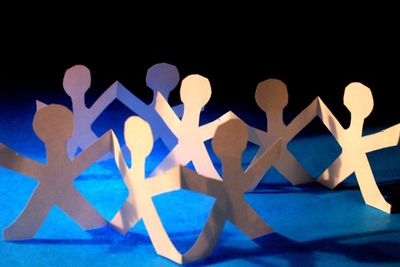By Liz Massey, Sept. 25, 2014.
I moved to Phoenix for the first time more than 17 years ago. I rented a unit in an apartment complex in central Phoenix that prided itself on its sense of gay and lesbian community. Newly renovated, it boasted several dozen one-bedroom units, a smallish but sparkling pool, and a location just off a major highway interchange.
Living at this complex was my introduction to the Valley’s LGBT community. My ex-girlfriend and I found it through Echo’s classifieds, and almost every resident was either gay or gay-friendly. It was small enough that everyone pretty much knew everyone else’s business, and it was a charitable enough place that the other residents put up with it when my ex insisted that we volunteer to write the complex’s newsletter and convey the property’s news almost entirely through the persona of our elderly cat.
It wasn’t a perfect place. There was a lot of partying at this complex — far more than my young, goody-two-shoes, raised-in-the-Midwest self was really ready for. Jealous spats between partners occasionally broke out in the courtyard and the ladies who lived downstairs owned a couple of Pomeranian dogs who were quite possibly the most enthusiastic barkers to ever grace the Earth.
My 18-month sojourn at this complex gave me a visceral day-to-day experience of the gay community. In this issue, Echo Magazine is celebrating 25 years of chronicling Phoenix’s gay “news, views, community and culture.” In my mind, reporting on the health of the community is just as important as conveying national or local LGBT news, sharing our opinions, or showcasing the best in queer culture.
One of my favorite descriptions of what a community can potentially aspire to be comes from the Rev. Martin Luther King Jr. He used the concept of “the beloved community” to illustrate a situation in which brotherhood between races was a living reality, and a situation in which people of all backgrounds were physically, socially and emotionally integrated. In today’s world, in which political partisanship is tearing our country apart and where global issues, such as climate change, threaten to trump any of our petty differences, aiming our tribe’s aspirations in this direction seems like a very good idea indeed.
How can we embody the beloved community, both as a group and in our individual lives? Here are a few ideas to get started.
Find common ground with our opponents.
This does NOT mean backing off in our fight for legal equality or capitulating to their hateful words. It does mean recognizing that our enemies are human, and that at some level, our human needs and their human needs (to be loved, feel safe and be included) intersect.
Participate as openly LGBT people in community conversations and problem solving.
Sharing with the wider world those strengths that we have developed as we stubbornly took care of our own places our struggle in a broader context, one that demonstrates its benefit for people beyond our own group.
Consider the meaning of “justice for all.”
There is a split in our community — one of long standing — between those who wish only to fight for LGBT rights, and those who realize that “injustice anywhere is a threat to justice everywhere,” to quote King again. We must continue to work to close that gap and link our equality campaign to universal human rights efforts.
Find creative ways to include marginalized groups in our community.
King saw institutionalized racism as an illness affecting everyone in society, not just African-American people. So he invited all Americans into the civil rights movement. Similarly, our equality movement is for everyone, as homophobia and transphobia limit everyone’s lives in significant ways. We benefit from including everyone in our community in our advocacy, not just “the usual suspects.”
I’ll always treasure the time I spent at that first apartment complex in Phoenix. It was my gateway to a host of good things that have come my way while living in the Valley: discovering all the wonderful gay-friendly businesses in central Phoenix, meeting my spouse and eventually becoming managing editor of Echo. It also taught me that “community” will always be bigger than my conception of it — it is deeper, wider, weirder and, quite frankly, more fabulous than I could ever imagine!
